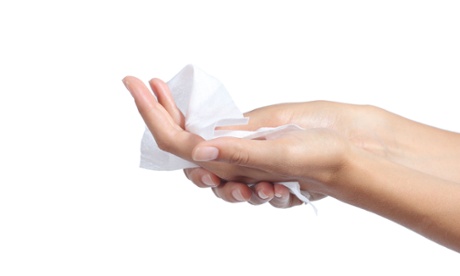
Age: Have been around since the 1950s, but started to be mass produced in the 1990s.
Appearance: Small, rectangular, white, innocuous-looking.
Note on corporate history: From small beginnings – basically being used to clean babies’ bottoms in emergencies – wet wipes (aka baby wipes, anti-bacterial wipes and detergent wipes) are now a multimillion-pound sector worth £500m a year in the UK.
Status: Scourge.
Surely you mean extremely handy aid that comes in useful when you need to wipe your hands after using the loo of a cafe in Turkey that doesn’t have any soap in the dispenser. That is probably anti-Turkish, but we’ll let it pass because there are bigger issues here.
Go on. A new report from Cardiff University says wet wipes show “huge variability” in their capacity to kill bacteria, and in hospitals can even spread superbugs from surface to surface.
Only if you’re stupid enough to use the same wipe on different surfaces. Fair point, but it seems some staff in hospitals – and lots of people at home too – are that stupid.
I swear by them. Well, you should start swearing at them, because this latest problem is just the tip of the fatberg.
You mean iceberg? No, I mean fatberg. So-called fatbergs – estimates of size vary from a bus to a jumbo jet – made up of wet wipes flushed down loos and the fat and grease poured down sinks are forming in sewers and causing blockages, with decidedly unpleasant consequences.
Overflowing toilets. Indeed. What’s more, increasing numbers of wipes, which because of the plastic fibres they contain are not generally biodegradable, are also washing up on beaches – 35 wipes per kilometre of beach, according to the Marine Conservation Society’s most recent count. Turtles mistake them for jellyfish and eat them.
What happens to them? They meet a painful, if relatively hygienic, end.
What can be done? Try a washable flannel and bar of soap instead.
Do say: “They’re a tragic symptom of our disposable society.”
Don’t say: “I suppose you think global warming is a problem too.”

